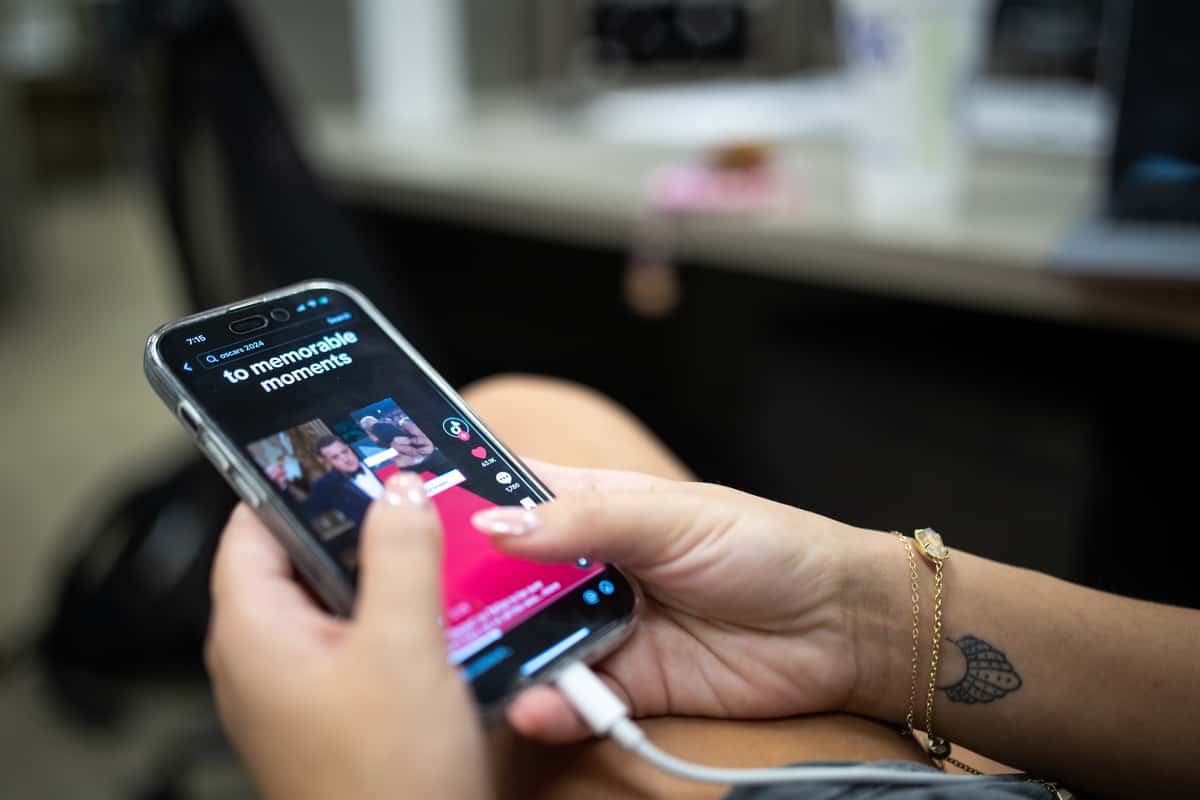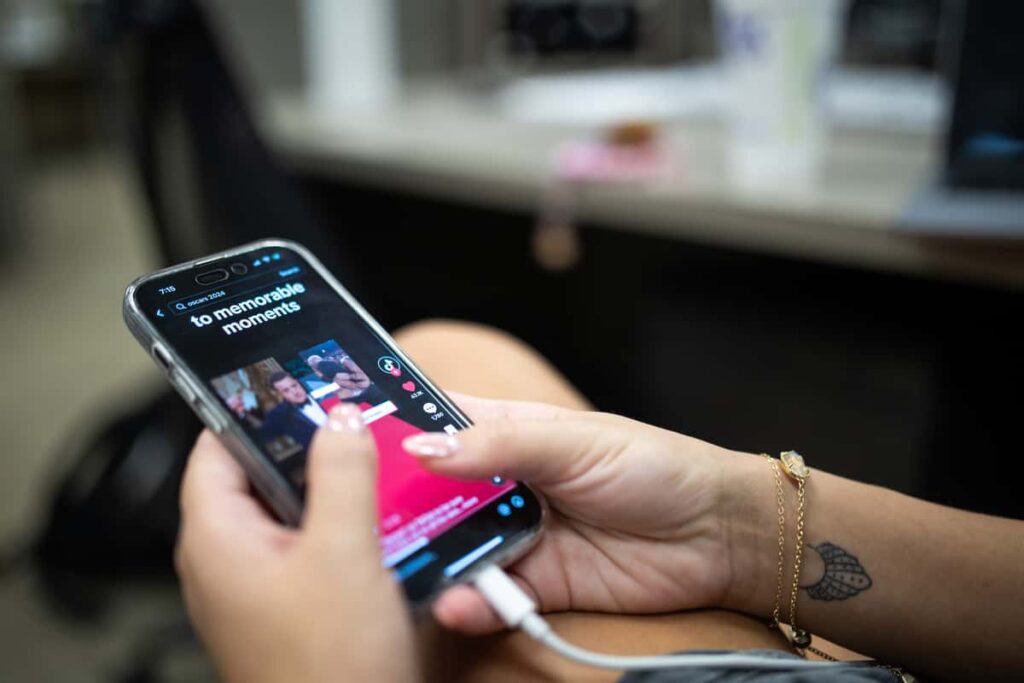
A student scrolls through TikTok.
I don't like TikTok. I don't think you should use TikTok. But you can do it.
As someone who has never even downloaded TikTok, my only experience with the site is basically my friend Katie sending me the worst “comedy” video I've ever seen (don't worry, she's (didn't read my column).
However, my experience is not a positive one. Research shows that TikTok's “For You” page Negative content suggesting self-harm Too much short-form video content Impair user concentration.
Moreover, while anecdotes are famously not a single form of data, contributing columnist Elle Standish wrote last year: Works for Crimson White She talked about how deleting TikTok “allowed me to grow richer in meaningful friendships, independent thinking, and even spirituality.”
But if TikTok is banned, it won't be because of its negative impact on users. At the end of the day, Instagram Reels and YouTube Shorts aren't any better than that.
However, on March 13th, the House of Representatives passed it Act to protect Americans from control applications by foreign adversaries. The bill would force TikTok's parent company, ByteDance, to sell a majority stake or TikTok would be banned in the US.
The bill's main sponsor, Rep. Mike Gallagher (R-Wis.), said: defended it “America's greatest adversary has no business controlling America's dominant media platforms.”
Frankly, banning TikTok just because it's owned by a Chinese company is foolish.
The United States and China are the two largest economic powers In the world.to last yearChina is America's largest source of imports (currently held by Mexico); third largest Countries receiving American exports.
Let's set aside for a moment that American-owned websites like Facebook, Google, Amazon, and Netflix are already in use around the world, and that this could lead to a wave of website bans.
Trying to separate the American and Chinese economies is a monumental challenge and is far more likely to encourage war between the two countries than prevent it. Of course, this does not mean that some policies aimed at fixing key weaknesses in supply chains are not valuable.
For example, over 60% of semiconductors are manufactured in taiwan, a potential target for a future invasion of China. If Taiwan were to be invaded, the United States and the world would have a hard time purchasing critical components in anywhere near acceptable quantities. So, chips methoda bipartisan law passed in 2022, was created and signed into law to foster the creation and growth of a domestic semiconductor industry.
But Congress' planned ban on TikTok is just another example of America's renewed Sinophobia going too far.
Republican Sen. Tom Cotton of Arkansas said this while TikTok's CEO, Singaporean businessman Shou Gee Choo, was testifying before Congress. I had the audacity to ask Chu if he had applied for Chinese citizenship., was a member of the Chinese Communist Party, etc. Chu's obvious answer is: “Senator, I'm Singaporean. No.”
Residents of Green Charter Township, Michigan are currently trying to prevent Chinese battery company Goshon has built a $2.4 billion factory that will bring thousands of jobs to this small town.
This economic xenophobia extends far beyond China and even beyond its nominal enemies.
Currently, Nippon Steel, a Japanese steel company, I'm looking to buy US Steel.(obviously) an American steel company. struggle For the last few decades. Even though Japan has been one of our closest allies for many years, It's been decades nowboth President Joe Biden and former President Donald Trump. was told the opposite Planned Acquisition.
The surprising bipartisan TikTok bill is the latest overreaction prompted by both parties' growing concerns about international trade and economic cooperation.
This doesn't just force ByteDance to sell TikTok or ban the app in the US. The bill also threatens other sites controlled by an organization. foreign adversary and “The President has determined that this poses a serious threat to the national security of the United States. ” What a wonderful ambiguity! I'm sure you can never abuse it.
So if forcing ByteDance to sell TikTok or banning its flagship app in the U.S. is the wrong move, what can be done? Just let the government buy TikTok and run it. .
After all, we've done something similar before.
During the 2008-2009 financial crisis, the federal government invested billions of dollars in Ally Financial Inc., the parent company of online banking service Ally Bank.for next four yearsFrom 2010 to 2013, the federal government held a majority stake.
The remaining shares were finally liquidated in 2014.by Congressional Research Servicethe government received $2.4 billion from its ownership and subsequent sale from Ally.
As director of technology policy at the Heritage Foundation, claimed 2020 — If TikTok gives China “100 million sensors across the United States,” the government should buy the app, make sure it doesn’t have backdoors, test TikTok’s proprietary algorithms, and then sell it. Or the federal government could continue operating it.
After all, giving the seemingly all-powerful meta a public competitor; Helps curb tech giants' worst impulses.
There is no reason why Congress should give the president the power to arbitrarily take over websites that appear to be in the hands of the wrong person and force or prohibit fire sales.
Instead, if it's really a matter of national security, let the government directly buy TikTok and choose what to do with it from there.


